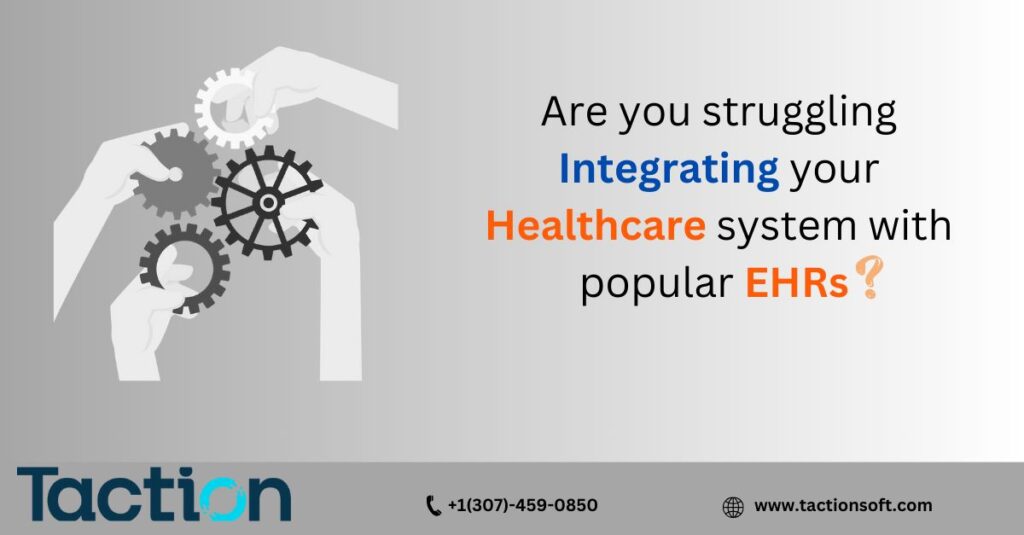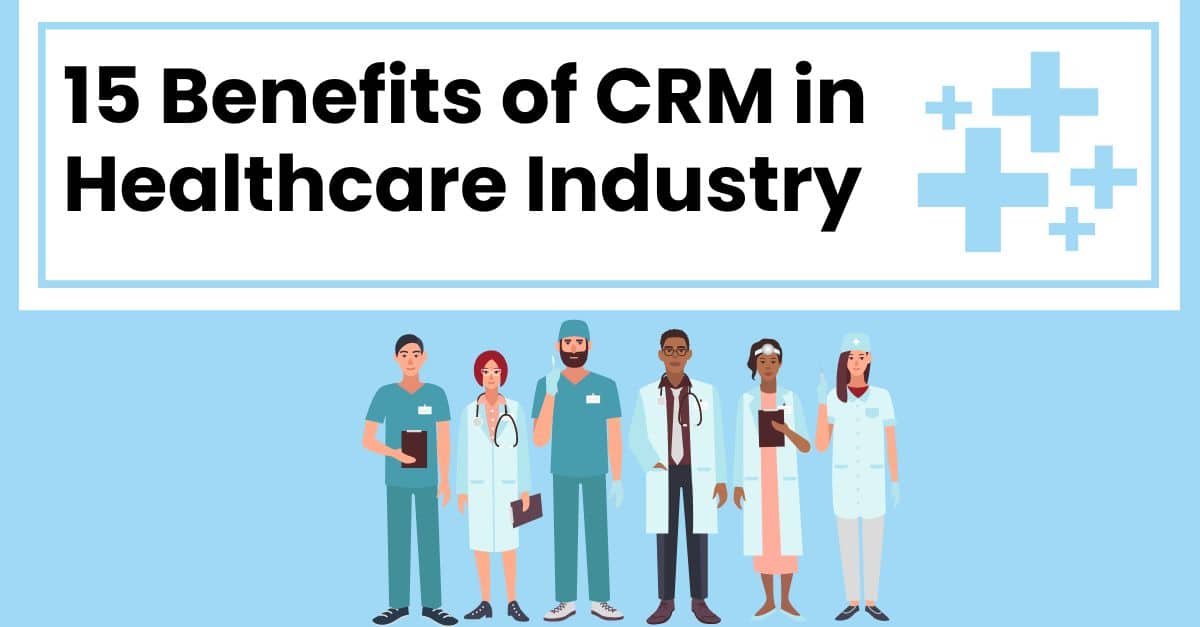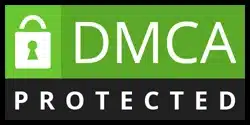Struggling to Integrate Your Healthcare System with Popular EHRs? In the fast-paced healthcare industry, the efficient exchange of patient information is vital. Electronic Health Records (EHRs) have transformed how healthcare professionals manage patient data. But, integrating EHRs into existing systems while maintaining regulatory compliance can pose a formidable challenge. If you’re grappling with EHR integration costs, complexity, and workflow disruptions, we offer the Industries best solutions. With over a decade of experience in healthcare integrations using Mirth Connect and more than 1000 integration points for 80+ Medical Billing and other healthcare companies, we are your go-to partner for achieving HIPAA-compliant HL7/FHIR integrations. Navigating Regulatory Compliance with Ease The healthcare industry is regulated, with the Health Insurance Portability and Accountability Act (HIPAA) being a critical framework. Achieving HIPAA compliance while integrating EHRs can be daunting, but our team is well-versed in healthcare regulations. We ensure that your EHR integration is not only efficient but also compliant with all relevant standards, providing peace of mind in a complex regulatory landscape. Seamless Data Exchange through HL7 and FHIR Standards Is inconsistent adoption of HL7 and Fast Healthcare Interoperability Resources (FHIR) standards causing data exchange difficulties? Inconsistent standards can lead to data exchange challenges, hindering the effective use of EHRs. Our team’s expertise in HL7 and FHIR standards ensures that your EHR integrations operate , promoting efficient communication between systems. Minimizing Workflow Disruptions and Resistance Do EHR integrations cause workflow disruptions and resistance among healthcare professionals adapting to new processes? Adapting to new processes can be challenging for healthcare professionals, leading to workflow disruptions. Our integration process is designed to cut these disruptions and ensure a smooth transition. We work with your team to understand your workflow and tailor our solutions to fit into your existing processes. Benefits of EHR Integration 1. Improved Patient Care: EHR integration facilitates comprehensive access to patient records, enabling healthcare providers to make well-informed decisions and deliver personalized care. 2. Enhanced Efficiency: Streamlining administrative tasks and automating processes through EHR integration increases the overall efficiency of healthcare delivery, reducing the time spent on paperwork and repetitive tasks. 3. Accurate and Complete Information: Integrated EHR systems ensure that all patient data is accurately recorded and easily accessible, minimizing the risk of errors and improving the quality of care. 4. Better Coordination of Care: EHR integration allows for seamless communication and data sharing among different healthcare providers, promoting better coordination and continuity of care for patients with complex medical needs. 5. Cost Savings: By reducing paperwork, eliminating redundant tests, and minimizing errors, EHR integration can help lower operational costs and improve resource utilization within the healthcare system. 6. Patient Engagement: Integrated EHR systems often include patient portals, empowering patients to access their health records, communicate with healthcare providers, and actively participate in their own care management. 7. Data Security and Privacy: EHR integration ensures that patient data is securely stored and can be accessed only by authorized personnel, thereby maintaining patient privacy and adhering to regulatory compliance standards. 8. Real-Time Information: Integrating EHR with healthcare systems enables instant access to real-time patient information, allowing healthcare providers to make timely decisions and provide immediate care as needed. 9Advanced Analytics and Reporting: Integrated EHR systems provide valuable insights through data analytics, enabling healthcare providers to identify trends, track patient outcomes, and make data-driven decisions for improved patient care. 10. Interoperability with Other Systems: EHR integration enhances interoperability with other healthcare systems and medical devices, fostering seamless data exchange and communication among different healthcare providers and institutions. Contact us to learn more about how we can help you achieve a seamless, cost-effective, and compliant EHR integration that will benefit your healthcare organization and, most , your patients. Our commitment to making healthcare systems work together ensures that you can focus on what matters most: delivering high-quality care to those in need. Say hello to get some cast studies info@tactionsoft.com
If you are also wondering why need CRM in healthcare Industry?, what is Benefits of healthcare CRM? which is the top CRM development company? then this article is going to answer all your questions. In the emerging market of healthcare today, integration of technology has become essential to provide efficient and patient centric services. One such innovation that has gained popularity in recent years is Healthcare Customer Relationship Management (CRM) software. CRM is used extensively in the healthcare industry, as the benefits of healthcare CRM are many. CRM technology is used to optimize patient experiences, streamline hospital operations. Additionally it is designed to enhance communication among healthcare providers, patients and medical organizations. If we talk about top CRM development company, then in this article we are going to give detailed information about that too. Seeing the benefits of healthcare CRM, hospitals and other healthcare organizations use these companies to streamline their operations. Furthermore, healthcare providers use CRM software to strengthen their relationships and expand their presence in the market. What is CRM ? Customer Relationship Management or CRM is a multifunctional software. CRM is used by hospitals to effectively manage and analyze interactions and data throughout the customer lifecycle. Benefits of healthcare CRM are many, mainly healthcare companies use it to help patients and to add new patients. The primary objective of crm for medical company is to enhance customer service relationships, assist in customer retention and drive sales growth. CRM softwares integrate customer data from various communication platforms, including website, telephone, live chat, email, direct mail and social media platforms. Benefits of healthcare CRM provides benefits such as empowering customer-facing teams with comprehensive customer insights, purchase history, personal details and preferences. The benefits of CRM range from better customer support and trend recognition to automating sales and support processes. 15 Benefits of healthcare CRM includes marketing automation, sales force automation, contact center automation, geolocation technology, social media CRM, workflow automation, lead management, HRM, analytics and AI integration etc. In this article, we will give you all detail about 15 Benefits of healthcare CRM. 15 Benefits of CRM in healthcare Industry 1.Improved Patient Experience: CRM softwares improves patient experience by providing care related facilities. There are many benefits to using CRM in healthcare industry, using CRM software benefits both hospitals and patients by reducing waiting times, providing quick access to patient profile and medical histories. The use of CRM accelerates diagnosis and treatment, leading to improve patient satisfaction. Especially, the Benefits of healthcare CRM is that CRM systems give patients instant access to treatment by facilitating appointment reminders and medication schedules, while ensuring seamless care continuity. In addition, CRM platforms manage patient information, eliminate records chaos, and increase administrative efficiency. 2.Effective Appointment Management: Another benefit of healthcare CRM is that CRM software prevents conflicts with patients regarding patient appointments and drug schedules and fixes appointments for only one patient at a time. CRM software helps in monitoring the health of patients more effectively by fixing proper schedules. This allows healthcare providers to remind patients of upcoming medical checkups or medication schedules. 3.Enhanced Patient Information Management: CRM systems help healthcare organizations manage patient information efficiently. CRM softwares provide an organized and easy way to record patient data. This feature of CRM software in large hospitals minimizes the risk of data loss. Healthcare CRMs provide tools to analyze information, which helps doctors determine the health status of patients. 4.Optimized Business Processes: CRM solutions are pivotal in streamlining healthcare operations and enhancing administrative efficiency. The benefits of Healthcare CRM is that you can optimize the internal process by using it. These CRM softwares play a vital role in enhancing the quality of patient care. These systems assist patients by centralizing details such as medical history, appointments and communications. Additionally these CRM software streamline tasks like appointment scheduling and communication, reducing no-shows and increasing revenue. 5.Personalized Patient Experiences: One of the benefits of Healthcare CRM is that it provides personalized patient experience by analyzing the personal data of patients, their preferences. CRM software that is data driven gives healthcare providers the flexibility to customize care services to meet the specific needs of each patient. 6.Billing and payment processing: Another benefits of a healthcare CRM is that the billing and payment processing process can be fully automated using it. It is very easy to send quotes to potential customers through pre designed templates. In addition, CRM software can be integrated with billing systems, allowing providers to view patient billing history and other data. 7.Data Security and Compliance: Healthcare Customer Relationship Management (CRM) systems play a vital role in safeguarding patient data and adhering to regulatory frameworks like the Health Insurance Portability and Accountability Act (HIPAA), which ensures the privacy and security of sensitive medical information. These CRMs employ robust encryption measures to fortify patient information whether it’s in transit or storage, thereby enhancing overall data protection strategies. 8.Comprehensive Patient Relationship Management: A blend of CRM and Patient Relationship Management (PRM) solutions synergize to overcome their individual limitations. Typically, CRM emphasizes data and communication, while PRM works to enhance patient satisfaction, loyalty, and overall experience. While CRM tools lack specialized features for channel partners, PRM provides a centralized hub with features such as content co-branding, onboarding, and automated content curation. The focused functionality of PRM serves to enhance partner interaction and user experience. 9.Improving the efficiency of healthcare: It is necessary to use CRM in the field of healthcare to work faster. With this system, medical professionals can rapidly provide information related to their disease to the concerned patients. In addition a CRM system allows patients to revisit reports, speeding up diagnosis processes. In addition the CRM system stores patients’ information which allows doctors and nurses to review necessary drug dosages. 10.Speeds up the diagnostic process: In the healthcare sector, CRM systems plays a pivotal role in expediting service delivery. medical professionals can instantly furnish prospective patients with pertinent details. For instance, harnessing the power of client databases enables the exploration of analogous cases among











